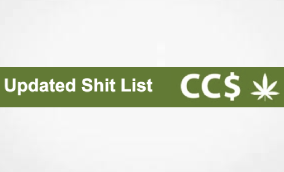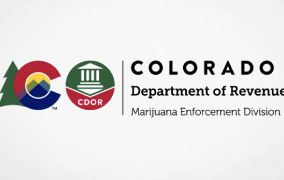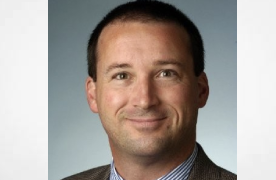Via Lex Blog
By on
There is a new twist in the “Right to Try” movement: A doctor in Seattle sued the DEA trying to establish a statutory right to treat terminally ill patients with hallucinogenic drugs without the DEA’s registration or approval. It did not work.
As we have written many times (such as here and here), the “Right to Try” movement is dedicated to making experimental drugs available to terminally ill patients as a last resort. These are patients on their last legs for whom there are no remaining approved treatments. They are also the intended beneficiaries of the FDA’s “expanded access” (aka “compassionate use”) program, under which a patient with an immediately life-threatening condition can gain access to an investigational medical product outside of clinical trials when no other options are available.
Congress passed the Right to Try Act in 2018 to create an alternative pathway alongside the FDA’s expanded access program. Both programs are intended to help the most desperately ill patients gain access to investigational products, but a Right to Try request is lodged directly with the product manufacturer, without the FDA’s involvement. The Right to Try Act therefore allows an end run on the FDA.
But what about the DEA? That was the issue in Advanced Integrated Medical Science Institute, PLLC v. DEA, No. 22-1568, 2025 U.S. App. LEXIS 3365 (9th Cir. Feb. 13, 2025), and the Ninth Circuit held that the Right to Try Act did nothing to impair the DEA’s regulatory authority over controlled substances.
In Advanced Integrated¸ a doctor wanted to treat late-stage and terminally ill cancer patients with psilocybin, a hallucinogenic compound found in some mushrooms. Psilocybin is a schedule I controlled substance under the Controlled Substances Act, which means it has a high potential for abuse, no currently accepted medical use, and a lack of accepted safety. Because of these conditions, a medical practitioner can dispense or possess schedule I controlled substances only in the context of “bona fide research,” which requires a special registration.
This doctor did not obtain (and appears not to have sought) the required registration, so he argued instead that psilocybin was an “eligible investigational drug” under the Right to Try Act, which gave him the right to prescribe psilocybin without regard to the DEA’s regulation of controlled substances. As the argument goes, the DEA would have referred the doctor’s special registration request to the FDA, which would effectively “re-impose” the FDA approval requirement that the Right to Try Act removed. Id. at *13-*14. Alternatively, the doctor asked the DEA to waive the special registration requirement under its rulemaking authority. Id. at *13.
The DEA declined these requests and urged the doctor to apply for the proper registration as an approved researcher, reasoning that the Right to Try Act did not enact any exemptions to the Controlled Substances Act. The DEA further declined to initiate rulemaking to allow psilocybin treatment because it was “not consistent with public health and safety.” The product, after all, was a schedule I controlled substance with high potential for abuse and no demonstrated safety or efficacy. Id. at *16-*17.
On the doctor’s petition for review, the Ninth Circuit agreed with the DEA. First, the Right to Try Act indeed did not create any exemption to the Controlled Substances Act. The Right to Try Act’s enumerated exemptions do not mention the CSA at all; and while the Right to Try Act forgives FDA approval for eligible patients and eligible investigational products, it does not exempt such products from regulation as controlled substances. The DEA thus had every right to insist on the special registration for a Schedule I substance, without running afoul of the Right to Try Act.
Second, on the DEA’s decision not to initiate rulemaking, the doctor was vague on exactly what rule he was requesting. In some places, the doctor requested an exemption from the special registration requirement only for himself; but in others, he seemed to be requesting a broader exemption for “physicians like [himself] who seek to administer schedule I substances to ultimate users for therapeutic purposes.” Id. at *23-*24. Given the doctor’s decision to litigate rather than seek the required special registration, we suspect his aim was broader than only his treatment of his own eligible patients. Either way, the Ninth Circuit ruled that the DEA was entitled to rely on the determination, under the Controlled Substances Act, that psilocybin has a high potential for abuse, no accepted medical use, and no accepted safety. Under those circumstances, abandoning the CSA’s limits was “too great a departure from current law and inconsistent with public health and safety.” Id. at *24-*25.
Third, the Ninth Circuit ruled that the DEA had not departed from its own precedent. One example that the doctor cited involved physicians who were registered with the DEA to conduct research with Schedule I controlled substances—unlike the doctor here. In other examples, nothing in the record indicated that the DEA exempted parties from the CSA’s registration requirements. Finally, the doctor analogized to DEA-registered companies that collect unused controlled substances for disposal, arguing that such companies were allowed to handle controlled substances “without registration.” This analogy was factually incorrect (registration is required for “reverse distributors”) and also not persuasive, since the doctor’s requested exemption for administering Schedule I substances to patients was simply different. Id. at *26-*30.
The upshot is that practitioners who seek to dispense or possess schedule I controlled substances must be properly registered as approved researchers in accordance with the CSA and its implementing regulations. The Right to Try Act did not alter that regulatory regime.
Source


















